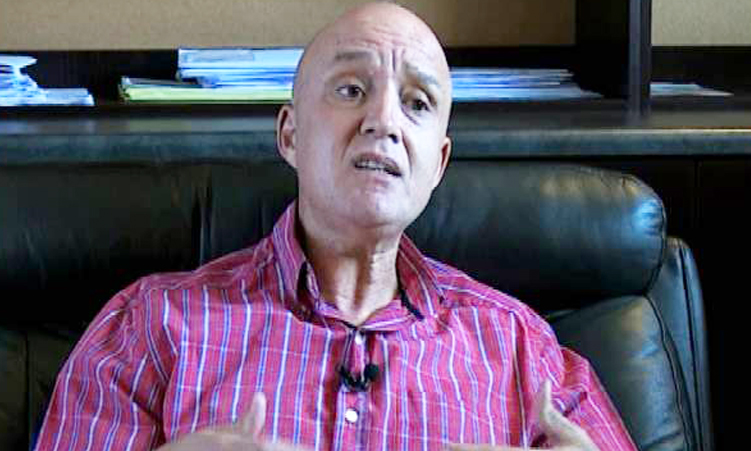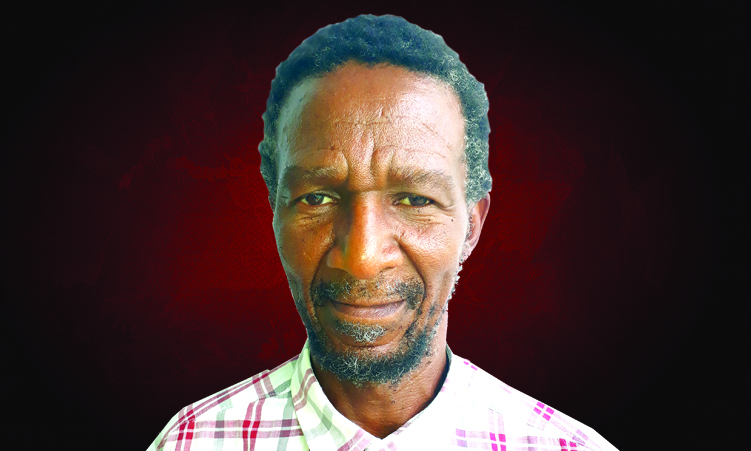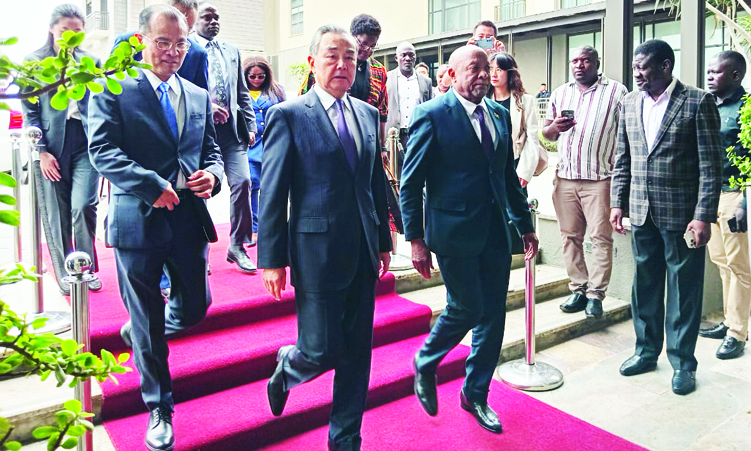On May Day 2023, it is vital to recover the history of working class struggles in Namibia to counter the revisionism of moderate pan-Africanism.
The first workers’ strike happened in December 1893 at the Gross Otavi mine during German colonialism, and involved both Damara- and Oshiwambo-speaking workers.
There was also the Kahn mine strike outside Arandis in 1916, soon after the start of South African colonialism.
These were the beginnings of the long and brave struggle of Namibia’s working class.
In December 1920, an enormous political event took place at Lüderitz. South African sociologist Lucien van der Walt, in the book ‘Labour Struggles in Southern Africa 1919-1949: New Perspectives on the Industrial and Commercial Workers’ Union (ICU)’ notes that the South West African ICU was founded at that time.
It was the first labour movement among the country’s “black” and “brown” workers and had branches at Lüderitz, Keetmanshoop, Walvis Bay and Elizabeth Bay.
Garveyism (or pan-Africanism) was not the dominant tendency in the political movement. It was more of a labour movement than a trade union if their political demands are considered.

KEY FORCES
Moreover, the ICU was not structured around workplaces but in residential locations, and raised political demands beyond the workplace, such as the lack of education and hospital facilities.
It was a pioneer of labour unionism and socialist ideas in Namibia; in many ways it focused on sites of social reproduction.
In 1918, James la Guma, a young worker with socialist leanings, played a key role in organising a strike at the Kolmanskop diamond fields, and the formation of the ICU there.
The Charlottental diamond mine strike in 1920 involved 250 Oshiwambo-speaking workers and five ‘Cape Boys’.
La Guma represented the Kolmanskop and Lüderitz branches at the 1923 ICU congress.
He eventually became a member of the Communist Party of South Africa and later the National Liberation League, a Trotskyist group.
The International Socialist League was also active during that historical period.
The Arbeiterverband für Südwestafrika (Workers League for South-West Africa) tried to affiliate to the South African Trade Union Congress, and a South West African Labour and Farmers’ Party was founded in November 1931, with W Fischer winning a seat at Kolmanskop.
CONTRACT SYSTEM
Over the years, there were many workers’ strikes at places such as Tsumeb and Oranjemund.
A general strike among contract labourers started in Windhoek on 13 December 1971, and lasted for five weeks.
It quickly spread to Walvis Bay, Tsumeb, Lüderitz and Oranjemund, and aimed to destroy the contract labour system, using the slogan ‘Odalate naiteke’ (‘Cut the wire’) referring to that vicious system.
In his book ‘Journey Into Exile’, Keshii Nathanael, founding president of the Swapo Youth League, wrote the strike was initiated by him, Negonga Nangutuuala and others at Walvis Bay because of discontent in the fishing industry.
The general strike was a huge success: 11 mines and 23 workplaces were affected. The strike leaders were arrested and sentenced to 18 months hard labour and then quickly deported to the north.
Scab labourers in Windhoek were confronted by a second level of strike leaders such as Harold Sam, a Khoekhoegowab speaker and a law student at the University of the Western Cape at the time.
Negonga’s brother, Johannes, a teacher, was the strike leader at Ondangwa, and played a critical role in ending the contract labour system.
SIGNS OF THE TIMES
After the 1971 general strike, Johannes and Andreas Nuukwako established the Democratic Co-operation Party (Demkop) aimed at forming a united front of political parties to struggle against contract labour, the Bantustan system and colonialism.
It is noteworthy that widespread reporting of the 1971-72 general strike meant it had a significant impact on the 1973 Durban strike, which is the theme for May Day in South Africa this year.
What are the political warnings from the Namibian struggle so far?
There were obviously other political formations in Namibian history such as the ICU and Demkop.
The moderate pan-Africanism of Swapo has not been the only political stream.
Importantly, the working class did not allow factors such as ethnicity or language to divide them.
Furthermore, Johannes Nangutuuala should remind us of the role of teachers as intellectuals in the struggles – especially in rural areas.
Namibia’s working class must absorb the political lessons and should celebrate May Day 2023 in the spirit of James la Guma and Johannes Nangutuuala!
- The authors are members of the Marxist Group of Namibia
Stay informed with The Namibian – your source for credible journalism. Get in-depth reporting and opinions for
only N$85 a month. Invest in journalism, invest in democracy –
Subscribe Now!








